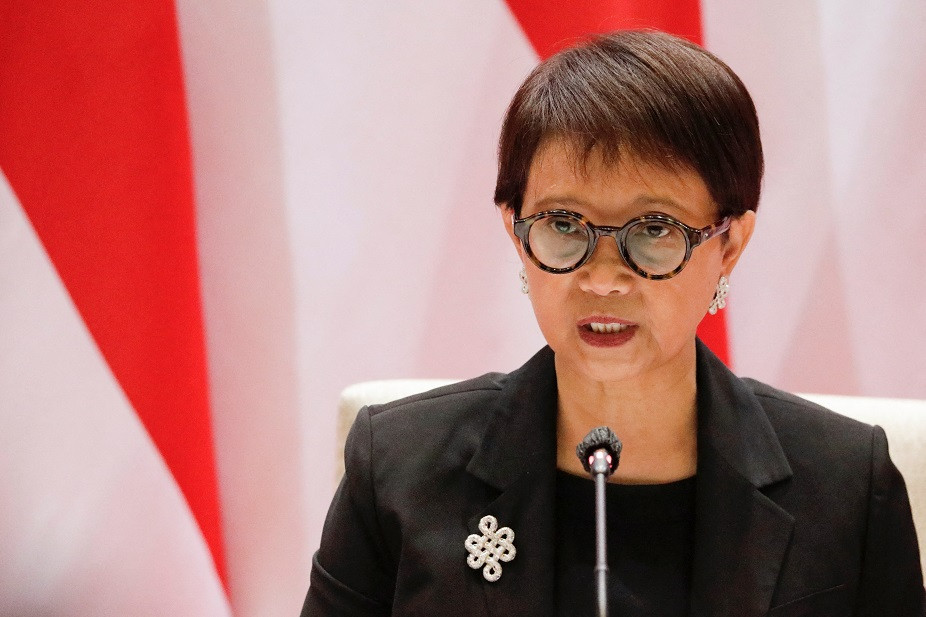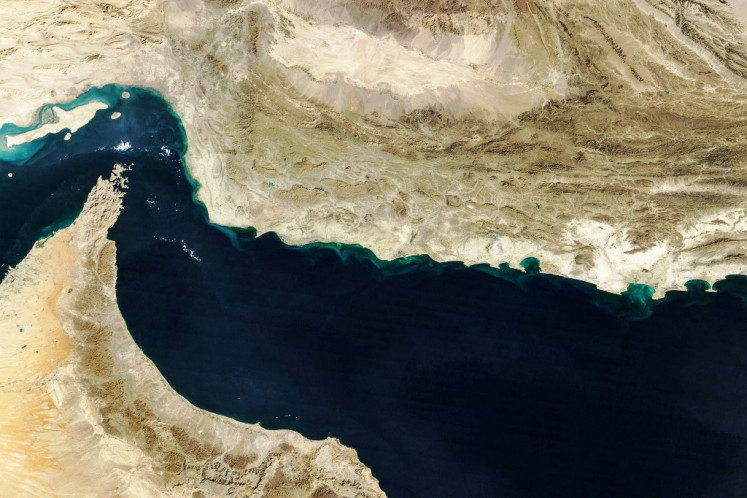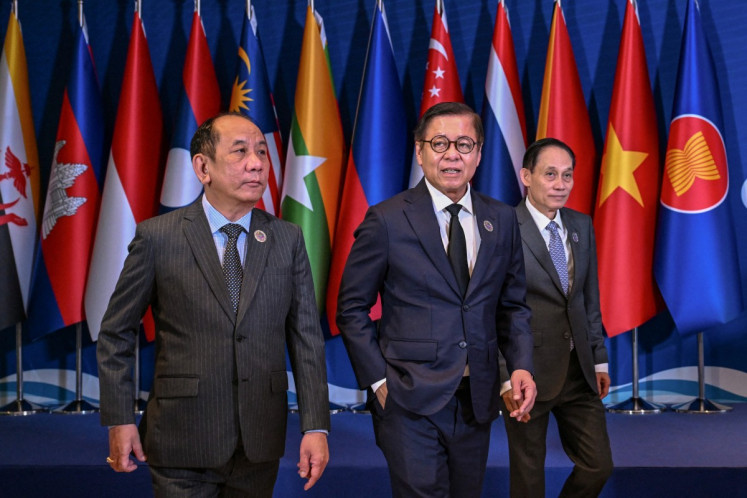Popular Reads
Top Results
Can't find what you're looking for?
View all search resultsPopular Reads
Top Results
Can't find what you're looking for?
View all search resultsMuch to prove
Unlike the first two AMM outings in February and April, the current agenda opens up the 10-nation association to international criticism and puts the members’ collective resolve to the test, with a wide array of issues to be debated in back-to-back meetings.
Change text size
Gift Premium Articles
to Anyone
I
t is time that Indonesia makes good on its leadership of ASEAN this week, considering the various challenges and unresolved issues that compete for the bloc’s attention.
Jakarta will play host to its Southeast Asian cohorts and dialogue partners over the next four days, as the chair convenes the outward-looking ASEAN Ministers’ Meeting (AMM) and other related forums.
Unlike the first two AMM outings in February and April, the current agenda opens up the 10-nation association to international criticism and puts the members’ collective resolve to the test, with a wide array of issues to be debated in back-to-back meetings.
From the Myanmar coup crisis that sees ASEAN credibility so closely scrutinized, to the question of nuclear power use and the sanctity of the agreed rules of regional engagement, to the competition in the Indo-Pacific that informs an impending arms race, never before has there been a time when so many problems need addressing.
Economic-minded ASEAN has frequently turned a blind eye to sensitive topics if the end justifies the means, but the group is slowly learning that there will always be a reckoning if deep-seated problems are left to gestate.
On the Myanmar issue, ASEAN is under pressure to act decisively against the tyranny of the junta, which plunged the nation into chaos and violence in a Feb. 1, 2021 coup.
The putsch has divided ASEAN into two groups; one side believing the incident would lead to regional instability, while the other insisting no one can interfere in an internal affair.
Analysts have pointed to ASEAN’s laissez-faire attitude to the 2014 putsch in Thailand, and the machinations that turned coup leader Prayut Chan-o-cha into a prime minister, as setting a precedent for other members of ASEAN to follow. And follow suit Myanmar’s military did.
Due to the multiplicity of forms of government in Southeast Asia, many of democracy’s basic tenets such as respect for human rights have been constantly challenged. Autocracies have not been properly held accountable for past atrocities and self-serving leaders are enabled.
So, even though the bloc managed to produce a forward-thinking ASEAN Charter in 2008, some of the principles enshrined in it are still subject to criticism.
Unsurprisingly, this has led to a perceived erosion of ASEAN norms and the rules-based order. If ASEAN member states do not even abide by their own rules, then why should the bloc’s dialogue partners do the same?
This may unfortunately be the backdrop for Indonesia’s push to strengthen ASEAN rules and norms, such as the Treaty of Amity and Cooperation (TAC) and the Southeast Asia Nuclear Weapons-Free Zone (SEANWFZ) treaty.
The question of using nuclear power and the intricacies that it brings can be summed up by recent developments in the Indo-Pacific region: while Western powers and their allies criticize North Korea’s development of its nuclear arms program, China and others are concerned by Japan’s plan to discharge nuclear waste-contaminated water into the ocean and Indonesia was alarmed about Australia procuring nuclear-powered submarines.
It is no wonder the ASEAN chair would seek to persuade nuclear-weapon states to accede to the SEANWFZ treaty.
The emerging arms race, as indicated by a jump in defense spending across the board, also does not bode well for the TAC, which every dialogue partner must accede to as a prerequisite for engaging with ASEAN.
The South China Sea is increasingly being contested using military might, yet ASEAN-China efforts to produce a code of conduct in the disputed waters remain elusive. Meanwhile in the South Pacific, Beijing is preparing for a war of influence with the United States.
For Timor-Leste, one can only imagine how difficult it is for the country to jump through hoops to become ASEAN’s 11th member state. Besides needing to catch up on institutional capacity to be able to contribute to meetings, Dili must quickly find its bearings and decide its own stance on so many issues.
While it would be most beneficial if it can look to its “big brother” Indonesia as an example, that only works out if Jakarta punches above its weight this time around.











